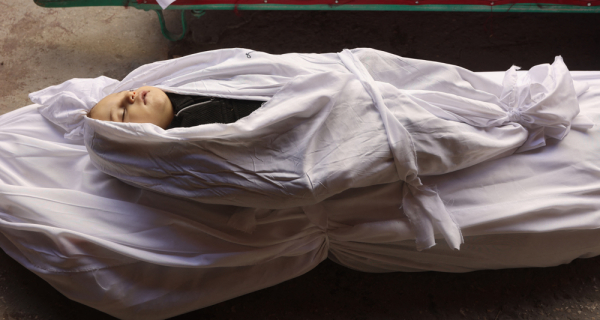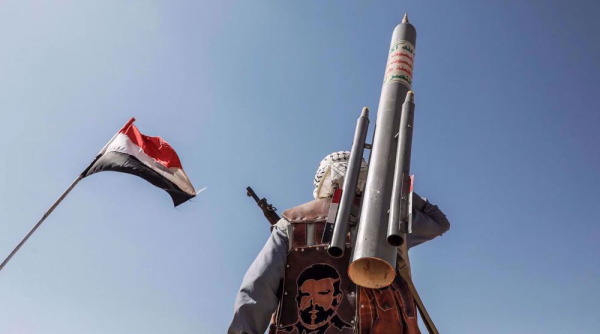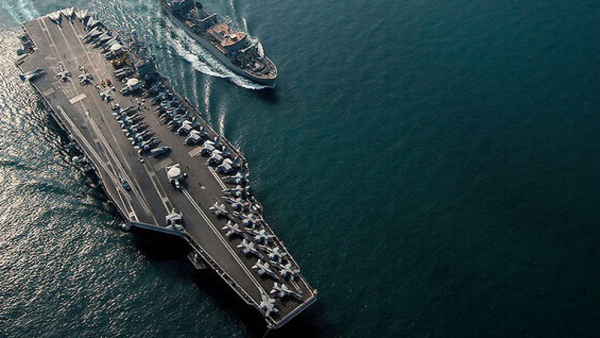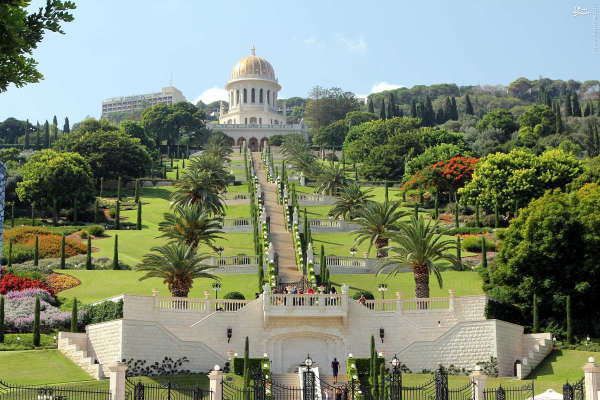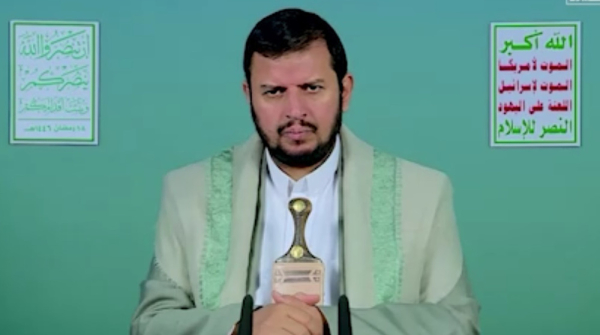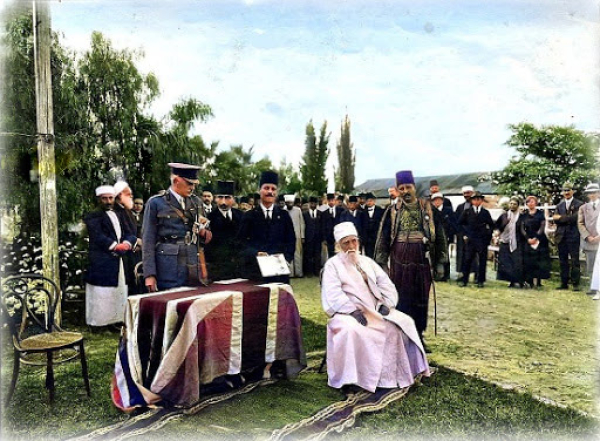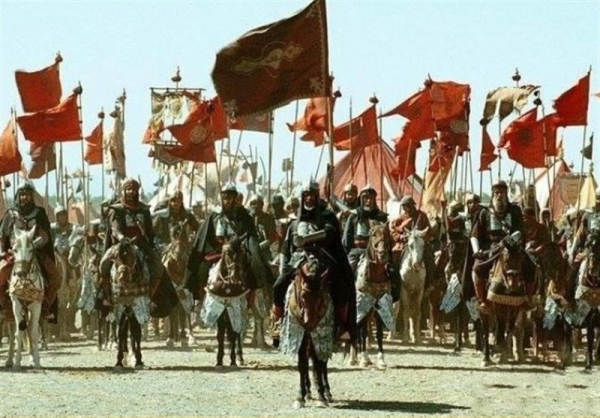zarezadeh
Netanyahu warns Israeli airstrikes that killed 174 children were ‘just the beginning’
Israeli prime minister Benjamin Netanyahu has declared an intensification of deadly assaults on Gaza, warning that the recent airstrikes, which killed at least 174 children, are just the beginning of a larger act of aggression against Palestinians.
In a televised address on Tuesday, Netanyahu said that Israeli forces would strike Gaza with “increasing force” and the recent attacks are just the initial phase of a broader offensive against the Palestinian resistance group Hamas and Gaza residents.
“Hamas has already felt the weight of our force in the last 24 hours, and I want to assure you – and them – this is only the beginning,” Netanyahu said, emphasizing that future ceasefire negotiations would occur “only under fire.”
Netanyahu's comments come in the wake of a renewed wave of airstrikes that have shattered an already fragile ceasefire, which had been in place since January 19.
He outlined the regime’s objectives in the current offensive, which include the release of all captives held by Hamas, fully dismantling the resistance group, and eliminating any alleged threat from Gaza to Israel.
These objectives have been reiterated over the last 17 months, yet the only outcomes have been the devastation of Gaza and the displacement of its residents.
He placed the blame for the breakdown of ceasefire negotiations squarely on Hamas, claiming that while Israel accepted an offer from US envoy Steve Witkoff, Hamas refused to engage, which led to the decision to resume military operations.
In response to Netanyahu's aggressive rhetoric, Hamas spokesman Abdul Latif al-Qanou said “Hamas remained committed to the agreement until the last moment, prioritizing its continuation, while Netanyahu, seeking to resolve his internal crises, chose to reignite the war at the expense of our people’s blood.”
As the Israeli military continues its bombardment of the Gaza Strip, the humanitarian situation has rapidly deteriorated. The Palestinian Health Ministry reports that over 400 civilians have been killed since the escalation, including more than 174 children.
The strikes have left more than 560 others injured, raising alarms about the scale of the humanitarian crisis unfolding in the territory.
The United Nations agency for children, UNICEF, has described the situation as “beyond horrifying,” with reports indicating that many strikes have targeted makeshift shelters where families sought refuge.
The UN agency urged Israel to reinstate the ceasefire and allow for the urgent delivery of humanitarian aid, warning that Gaza’s one million children are now trapped in even greater fear and danger.
Ayed Abu Eqtaish, accountability program director at Defense for Children International-Palestine(DCIP), lamented, “Today marks one of the largest one-day child death tolls in Gaza in history,” labeling the ongoing violence as a “death warrant for Palestinian children.”
More than 18,000 Palestinian children have been killed in Israeli attacks in the Gaza Strip since October 7, 2023, according to the Ministry of Health.
“The true death toll is likely to be much higher, and children continue to suffer from serious communicable and preventable conditions like hypothermia, malnutrition, dehydration, and scabies,” the DCIP official said.
The humanitarian crisis has been exacerbated by the blockade of lifesaving aid, with essential supplies running dangerously low. The main desalination plant in Gaza has also lost electricity, curtailing access to clean drinking water for the already beleaguered population.
Press TV’s website
Yemen announces successful hypersonic missile strike on Israeli airbase
The Yemeni Armed Forces have announced the successful targeting of Israel’s Nevatim Airbase, from which the attacks on Gaza are being carried out, using a hypersonic ballistic missile named “Palestine-2.”
The operation was conducted in solidarity with the Palestinian people and in response to "the criminal massacres by the Zionist enemy" in Gaza, according to a statement by the Yemeni Armed Forces on Tuesday
Yahya Saree, the spokesman for the Yemeni forces, said the operation "achieved its objective."
Earlier in the day, the Israeli regime claimed it had intercepted a missile launched from Yemen after air raid sirens sounded in several areas in the southern parts of the occupied territories.
The Yemeni statement warned that Yemen would expand its list of targets within occupied Palestine in the coming hours and days if the Israeli assault on Gaza does not cease.
The Yemeni Armed Forces said the Arab nation would not stand idly by while witnessing massacres against Palestinians in Gaza.
They pledged to utilize all available capabilities to defend and support the oppressed in Palestine.
“Yemen’s leadership, people, and military will not remain silent while witnessing these massacres against our brothers in Gaza.”
“With God’s help, the Yemeni Armed Forces will dedicate all their resources to defending and supporting the oppressed in Palestine until these crimes against our brothers in Gaza cease,” the statement said.
It also highlighted Yemen’s continued opposition to US policies in the region and its commitment to disrupting Israeli maritime activities until the blockade on Gaza is lifted and humanitarian aid is allowed into the besieged territory.
This strike marks Yemen's first direct attack on the Israeli-occupied territories since the Gaza ceasefire deal took effect in January.
The ceasefire had largely contained the US-Israeli genocide in Gaza, but the regime's Tuesday attacks on the Strip, which killed over 400 Gazans and injured hundreds more, marked a resumption of hostilities.
Yemen had previously issued Israel a four-day ultimatum to lift the total blockade of Gaza, which it said violated the ceasefire agreement, or face retaliation.
Israel's defiance led Yemen to announce the resumption of its naval operations against Israeli-linked ships in the region.
The US and Britain have carried out a series of deadly attacks on Yemen in recent days in support of Israel.
Yemen has responded with several operations targeting American warships in the Red Sea.
Yemen had launched scores of drone and missile attacks on passing ships and Israeli territory during the Gaza genocide in solidarity with the Palestinians.
Press TV’s website
Yemen targets US aircraft carrier in Red Sea with cruise missiles, drones for fourth time in 72 hrs
Yemen’s Armed Forces have announced carrying out a preemptive strike against a United States aircraft carrier deployed off the Arab Peninsula country’s coastline as part of Washington’s continued support for the Israeli regime, besides confirming escalation of their operations against Israeli targets.
Spokesman Yahya Saree announced the developments in a statement on Wednesday, saying the forces had, for the fourth time within 72 hours, conducted a “joint operation” against USS Harry S. Truman in the Red Sea.
The operation came after the troops “monitored hostile military movements in the Red Sea in preparation for a large-scale aerial attack against Yemen,” he said, adding that several other warships had also been targeted during the strike.
The troops deployed “a number of cruise missiles and drones” against the vessels during the strike, Saree noted.
On Saturday, US President Donald Trump announced issuing an executive order that had mandated deployment of “overwhelming lethal force” against the already impoverished nation that had recently resumed a ban on Israeli ships from crossing key maritime regions.
Subsequently, American warplanes conducted extensive raids against purely civilian targets throughout Yemen, claiming the lives of scores of non-combatants.
‘Yemen to stay unbowed’
Adding to his remarks, Saree underscored that “the American aggression will not deter Yemen from fulfilling its religious, moral, and humanitarian duties towards the Palestinian people.”
He, meanwhile, confirmed that the Armed Forces had initiated “escalation of military operations against the Zionist enemy unless the brutal aggression on Gaza stops and the siege is lifted.”
The remarks came after the forces said they had carried out a successful operation against the Israeli regime’s Nevatim Airbase, from which the attacks on Gaza are being carried out, using a hypersonic ballistic missile codenamed “Palestine-2.”
Announcing that development on Tuesday, Saree said the strike had "achieved its objective."
Press TV’s website
US Cooperation with Baha’iism
The Baha’i Faith’s Lost Order Cooperation with American Institutions in Developing Human Rights Activities Against Iran
?The Baha’i Public Affairs Office of the United States and the Aspen Institute’s Office of Religion and Society Program in the United States have begun a new collaboration and launched a joint project entitled “Exploring Spiritual Insights into America’s Evolving Story.”
?The first step in this project is the publication of a collection of articles entitled “Religious Perspectives on American Narratives.”
♦️The Baha’i Office in the United States is expanding its activities in constructing “Narratives of America,” which it began with the American Narratives Institute before Aspen, and the collaboration with Aspen is another part of this project.
?The main goal of this project is to answer the question, “How can diverse communities move beyond fragmented narratives of the past to create a shared vision of the future that fosters unity and respects truth?”
?The American Narratives Project documents the real lives of people in different parts of the United States, often by collecting written stories, audio interviews, and video documentaries. These efforts are particularly aimed at creating a space for the voices of people who are often ignored in mainstream historical narratives to be heard.
?The project works to make the voices of minorities and those who are usually less considered in official and media narratives heard. The institution seeks to record and share the stories and experiences of different groups in American society, including racial, ethnic, religious, and cultural minorities.
?The reason for the Baha’is’ participation in this project can be traced to learning about the processes of strengthening minority voices in the international arena. The lost Baha'i sect can explore the potential of this project to expand it to sectarian communities in Iran.
♦️Sect groups such as Baha'i, Ahmad al-Hassan, Erfan Halgheh, etc. can use the potential of this narrative analysis and inflict new blows on Iran's international image in the field of human rights.
Israel to attack other countries if it liquidates Palestinian cause; anti-Israeli military action ‘ideal’: Al-Houthi
The leader of Yemen’s Ansarullah popular resistance movement warns that the Israeli regime will start attacking other countries if it manages to defeat the Palestinian cause of liberation from its occupation and aggression, recommending military action by the world’s Arab and Muslim countries against the regime.
“If Israel succeeds in liquidating the Palestinian cause, it would undoubtedly extend its aggression to other countries unrestrained,” Abdul-Malik al-Houthi cautioned during a televised address on Tuesday.
“Those relying on agreements with Israel should recognize that Israel disregards commitments, even when guaranteed by the US,” he added.
The Yemeni leader was referring to the regional Arab states that had either entered United States-facilitated rapprochement agreements with the regime or contemplating the prospect, including the United Arab Emirates, Bahrain, Sudan, and Saudi Arabia.
The remarks came after the regime resumed its intensified deadly aggression against Gaza earlier in the day, despite a standing ceasefire agreement that took effect in January with the aim of ending more than 15 months of a war of genocide against the coastal sliver by Tel Aviv.
According to Palestinian health officials, 424 people were killed in the attacks on Tuesday alone, including 174 children and 89 women. More than 600 others were wounded as Israeli forces targeted homes, mosques, and shelters.
The bombardments have exacerbated an already dire humanitarian crisis, with medical supplies running out and border crossings remaining closed for the 17th consecutive day.
The escalation is aimed at forcing the Gaza-based Palestinian resistance movement Hamas into releasing those of the regime’s captives, who remain in Gaza in one batch, without Tel Aviv’s keeping its side of the bargain by letting the ceasefire deal transit into its second phase, releasing thousands of Palestinian prisoners, ceasing its bloodletting in the Palestinian territory, and enacting a complete withdrawal from it.
Amid the situation, al-Houthi said, “Military action by Arab and Islamic regimes [against the occupied Palestinian territories] is ideal.”
Such operation, however, was “unlikely,” he added.
Arm Palestinian resistance; boycott Israel’
The Yemeni leader, meanwhile, asked, while refusing to strike the regime, “why don’t they (the world’s Arab and Muslim countries) provide military support to Palestinian fighters?”
He advised the countries to supply weapons to Palestinian resistance movements as a counterweight to substantial military support for the regime on the part of the West, especially the US.
“Palestinian resistance needs financial and military support; Arab and Muslim states are responsible for providing this.”
Among the Arab and Muslim states, al-Houthi urged Turkey, Egypt, Jordan, Saudi Arabia, and the UAE to impose economic boycotts on Tel Aviv to deprive it economically.
He lamented Arab states’ refusing to “make any serious effort—even minimally—to oppose its (the regime’s) aggression.”
This is while ”watching genocide in Gaza without action is disgraceful, shameful, and a stain on humanity. No one will escape shame and divine punishment for standing by while Gaza’s genocide occurs,” the Yemeni leader stated, describing the fresh Israeli escalation as Tel Aviv’s resuming the genocidal warfare.
He condemned the US for lavishing billions of dollars in terms of financial and military aid on the regime and its markedly stepping up the support during the genocide.
“Israel’s heinous crimes and genocidal campaign rely heavily on American support and complicity,” al-Houthi said.
The Yemeni official also reminded that the regime had consulted Washington before resuming the genocide -- as announced by the White House earlier -- saying the intensified Israeli raids have “occurred with American advice, as openly admitted by American officials.”
Sana’a, though, would keep up and escalate its pro-Palestinian strikes amid the circumstances, besides continuing to stand up to the US’s deadly aggression towards Yemen that has notably increased since Saturday in an attempt to force the Arab Peninsula nation into stopping its operations against Israeli targets.
'Hamas not to cower'
Elsewhere in his remarks, al-Houthi put it past the Israeli regime to be capable of forcing Hamas into accepting its demands through either the escalation towards Gaza or its siege of the territory.
“Hamas will never compromise on obligations regarding the second phase, nor bargain to avoid war.”
Press TV’s website
Baha'i Sect in India
Activities of the Baha'i Sect in India under the title of "Developing Talents" by the Mona Foundation
?The Persian Media Service aired a conversation with the founder and one of the board members of the Mona Foundation on the 2nd of Aban program on the "Journagar" program about the activities of this institution in India.
?In this program, which was broadcast under the title "Documentary of Light and Air", Mahnaz Javed (founder and director of the Mona Foundation) described the activities of this institution in India, and stated that the development of talents, vocational training and skills, and creating a new perspective on individual and social identity are among its programs, especially for girls.
♦️The country of India, due to its abundant missionary capacities and the lack of centralized unified cultural system, along with the economic and cultural poverty of the people, especially the villagers, has provided a suitable environment for the activities of the misguided Baha'i sect under the guise of charitable institutions and foundations.
?The Mona Foundation is an institution established in memory of Mona Mahmoud Nejad (a Baha'i who was executed for her organizational work in Iran at the beginning of the revolution) and has been active in various countries. It propagates the Baha'i teachings under the guise of educational assistance to children and adolescents in other countries and spreads hatred against Iran.
?The New Horizon School in Haiti, the Association for the Integrated Development of the Amazon (ADCAM) in Brazil, the Anis Zenozi School in Haiti, the Badi School in Panama, the Barley Institute in India, the Badi Foundation in China, the Mongolian Development Center, the Sunflower Schools in Vietnam, and the TKP Institutes, Rancho Sespe, Tarzana, in the United States, are among the institutions affiliated with this foundation.
?The foundation claims that it carries out its activities solely with public donations, but the volume of its projects and the geographical scope of its activities indicate a special financial source.
Imam Ali's (a.s.) Cultural Policies and Reforms After the Caliphate
Development of Education: The Imam addressed Qutham ibn Abbas, the ruler of Mecca, and said: "Sit for them in the morning and evening, give fatwas to those who seek advice, teach the ignorant, and negotiate with the learned." Historical sources also state that whenever the Imam found time during the war, he would educate the people and judge among them.
Preventing the disruption of good traditions and conflicting with bad traditions;
Paying attention to criticism and ignoring the praise of others.
Economic policies and reforms in the time of Imam Ali (as)
Development of cities: Imam Ali (a.s.) said to his rulers: “The superiority of a ruler lies in the development of cities.”
Agricultural development: It is narrated from Imam Baqir (a.s.) that Ali (a.s.) wrote to the commanders of the army, “I swear by God that you should not oppress the farmers.” It is also narrated from the Imam that: “God Almighty has commanded His servants to develop the earth so that they may earn a living from what grows from the earth, from seeds, fruits, and the like, from the things that God has made the servants’ livelihood.”
Development of industry and trade: The Imam (a.s.) said to the people: “Engage in trade, for trade will make you free from the need for what is in the hands of others.” Or he said: “A person’s profession is a treasure.”
Direct inspection of the market and prevention of hoarding;
Equal distribution of public wealth and not delaying its distribution;
Supporting the lower classes of society;
Imam Ali's (a.s.) administrative policies and reforms after the formation of the government
Selecting competent officials and dismissing incompetent officials and not employing traitors and incompetents;
Planning and organization: The Imam writes in his famous letter to Malik Ashtar: "Do each day's work on the same day; because each day has its own work... Avoid haste in doing things that have not yet come, and laxity when it is possible to do them, or undue insistence when it is unknown and ambiguous, or laxity when it is clear and obvious! Establish every work in its place and do every work at its time";
Lawfulness;
Appointing a watchman to watch over the officials and being generous in providing for the officials: The Imam writes in his letter to Malik: "Make abundant provision for them (the officials); Because this is a force for reforming their souls, and a cause of freedom for them, so that they do not touch the wealth they have, and it is a proof against them if they do not accept your command or betray your trust.
Wars during the Caliphate of Amir al-Mu'minin
Hazrat Ali (a.s.) fought three battles against his enemies during his caliphate of four years and nine months. These battles include:
The Battle of Jamal in 36 AH with the Naqsh-e-Naq These two naive companions were deceived by Muawiyah's letter and decided to go from Medina to Mecca and gather people and equipment for war there. Aisha, the wife of the Messenger of God (peace be upon him), also rode with them on a red-haired camel to fight. Aisha said: "People! Uthman has been killed unjustly and I will avenge his blood." While according to history itself, these three people had the greatest share in killing Uthman.
The Battle of Jamal ended in a one-day but hard fight, with many casualties on both sides and the defeat of the Naqsh-e-Khatin, and Imam Ali sent Aisha with his brother Muhammad bin Abi Bakr to Basra and from there to Medina with a number of Basra men and women.
After the Battle of Jamal, Imam Ali chose Kufa as the center of the caliphate and since he knew that the rebellion of the treaty-breakers was one of the sins of Muawiyah who encouraged them to break the treaty, he moved from Kufa with a large army and encountered Muawiyah in the desert of Siffin. And thus, a hard and long battle broke out between the armies of Iraq and Syria.
Although the Battle of Siffin went in favor of the Imam (a.s.), due to the ignorance of some and the deceit of Amr al-As, the matter went to arbitration. In the arbitration, Abu Musa al-Ash'ari, who had been chosen as the arbitrator against the will of Imam Ali (a.s.), acted ignorantly and the caliphate fell to Muawiyah.
After the Battle of Siffin, the ignorant people who agreed to arbitration said that they had sinned and repented, "Ali" should also repent! Then they gathered in a place called Nahrawan and began to disrupt the work of the Imam (a.s.). The Imam's efforts to guide them were futile, so he sent an army to fight them, which ultimately ended with the defeat of the Khawarij in the Battle of Nahrawan.
